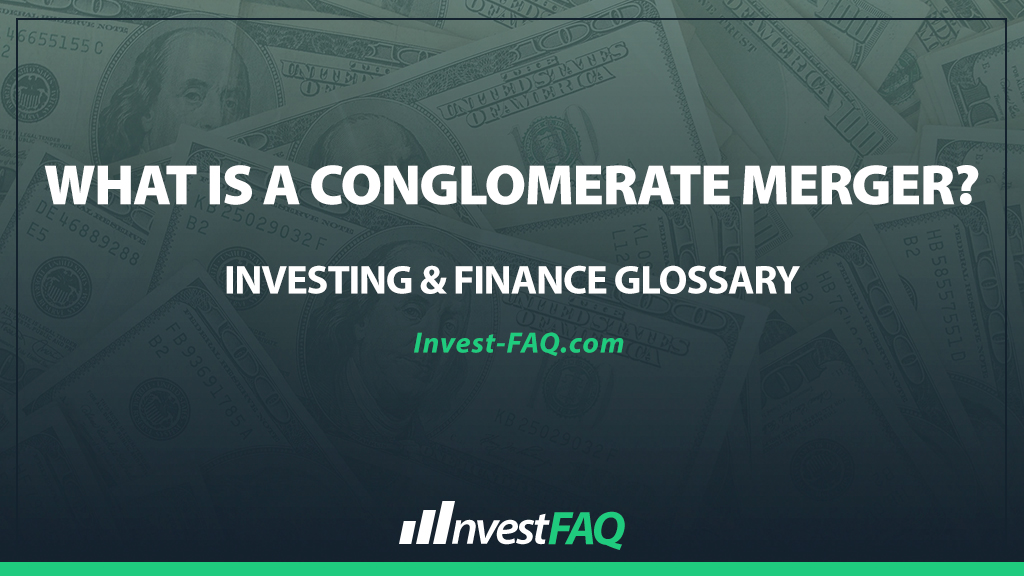
Conglomerate Merger
Contents
A conglomerate merger is a union between two or more corporations engaged in entirely unrelated business activities, spanning different industries or markets. These mergers are typically executed to diversify business operations, reduce risks, and capitalize on new market opportunities.
Businesses pursue conglomerate mergers to broaden their market reach, diversify their product lines, and stabilize financial performance by not relying on a single industry.
This strategy can protect against industry-specific downturns and create synergies by combining diverse business operations, potentially leading to improved efficiency and increased company value.
Example of a Conglomerate Merger
“TechGiant Inc.,” a leading technology company, merges with “HealthWellness Co.,” a healthcare provider, forming a conglomerate. The merger is valued at $2 billion, with “TechGiant Inc.” acquiring “HealthWellness Co.” for $500 million in cash and the issuance of shares worth $1.5 billion in “TechGiant Inc.”
Transaction Details:
Cash Paid: $500 million
Shares Issued: Worth $1.5 billion
In this example, “TechGiant Inc.” expands its business portfolio beyond technology to include healthcare services by acquiring “HealthWellness Co.”
This conglomerate merger allows “TechGiant Inc.” to diversify its revenue streams and reduce its exposure to the volatile tech market by tapping into the steady demand for healthcare services.
The accounting implications include recognizing the acquisition cost, reallocating assets and liabilities, and potentially adjusting the balance sheet to reflect the new corporate structure and the goodwill generated from the acquisition.
Significance for Investing & Finance
The accounting significance of a conglomerate merger includes:
Diversification of Risk: By merging with companies in different industries, businesses can spread their operational risks, potentially leading to more stable financial performance.
Revenue Stream Expansion: Conglomerate mergers allow companies to explore new revenue opportunities outside their original market, contributing to growth and sustainability.
Goodwill and Asset Valuation: These mergers often involve significant amounts of goodwill due to the purchase of companies at more than their net asset value, affecting balance sheet presentations and future amortization expenses.
Financial Synergy: Combining financial resources and operational capabilities across diverse industries can lead to cost savings, improved efficiency, and enhanced shareholder value.
In summary, conglomerate mergers are a strategic move for companies seeking to diversify their operations and mitigate industry-specific risks.
From an accounting perspective, these transactions require careful evaluation and integration of assets, liabilities, and equity to accurately reflect the new business structure and its financial implications. Successfully managed, conglomerate mergers can offer a path to growth, stability, and increased market presence for the involved entities.
FAQ
What characterizes a conglomerate merger in the business world?
A conglomerate merger occurs when two companies operating in completely unrelated business activities combine forces, aiming to diversify business operations and reduce overall risk.
How does a conglomerate merger differ from a horizontal or vertical merger?
Unlike horizontal or vertical mergers, which involve companies in the same industry or supply chain, respectively, a conglomerate merger involves companies from unrelated industries, focusing on diversification rather than increasing market share or supply chain consolidation.
What are the primary benefits of a conglomerate merger for the companies involved?
The primary benefits include diversification of business activities, which can lead to reduced business risk, potential cost efficiencies through shared services, and access to new markets or customer bases.
Can a conglomerate merger affect competition within the industry sectors of the companies involved?
Since conglomerate mergers involve companies from unrelated industries, they generally have minimal direct impact on competition within their original industry sectors, focusing instead on growth and diversification into new areas.
